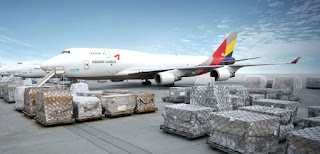International Sea Freight Forwarding Services
International Sea Freight Forwarding Services plays a crucial role in global trade by managing the shipment of goods via sea routes. These services involve the transportation of cargo in shipping containers from one country to another, often across different continents. Here's an overview of how sea freight forwarding services typically work:
Booking and Documentation:
The process begins with the shipper booking space on a cargo vessel with a freight forwarder.
Documentation, including the bill of lading, commercial invoice, packing list, and other necessary paperwork, is prepared to comply with international trade regulations.
Containerization:
Goods are packed into standardized shipping containers for ease of handling and transportation. The containers can vary in size and type, and the choice depends on the nature of the cargo.
Transportation to Port:
The freight forwarder arranges for the transportation of the container from the shipper's location to the port of departure. This can involve various modes of inland transport, such as trucks or trains.
Customs Clearance:
Customs clearance procedures are undertaken to ensure that the cargo meets the regulations of the departure and destination countries. The freight forwarder assists in preparing and submitting the necessary customs documentation.
Ocean Freight:
The freight forwarder coordinates with shipping lines to ensure the smooth loading of containers onto the cargo vessel. The vessel then sails to the destination port.
Destination Services:
Upon arrival at the destination port, the freight forwarder manages the unloading of the container and arranges for transportation to the final destination.
Customs Clearance at Destination:
Customs clearance procedures are repeated at the destination to comply with local regulations.
Delivery to Consignee:
The freight forwarder ensures that the goods are delivered to the consignee's location, which may involve further inland transportation.
Throughout this process, the sea freight forwarder acts as an intermediary, coordinating various logistics activities and ensuring that the shipment complies with international regulations. They also provide visibility and updates to the shipper and consignee throughout the transportation process.
.jpg)

.jpg)
.jpg)
Comments
Post a Comment